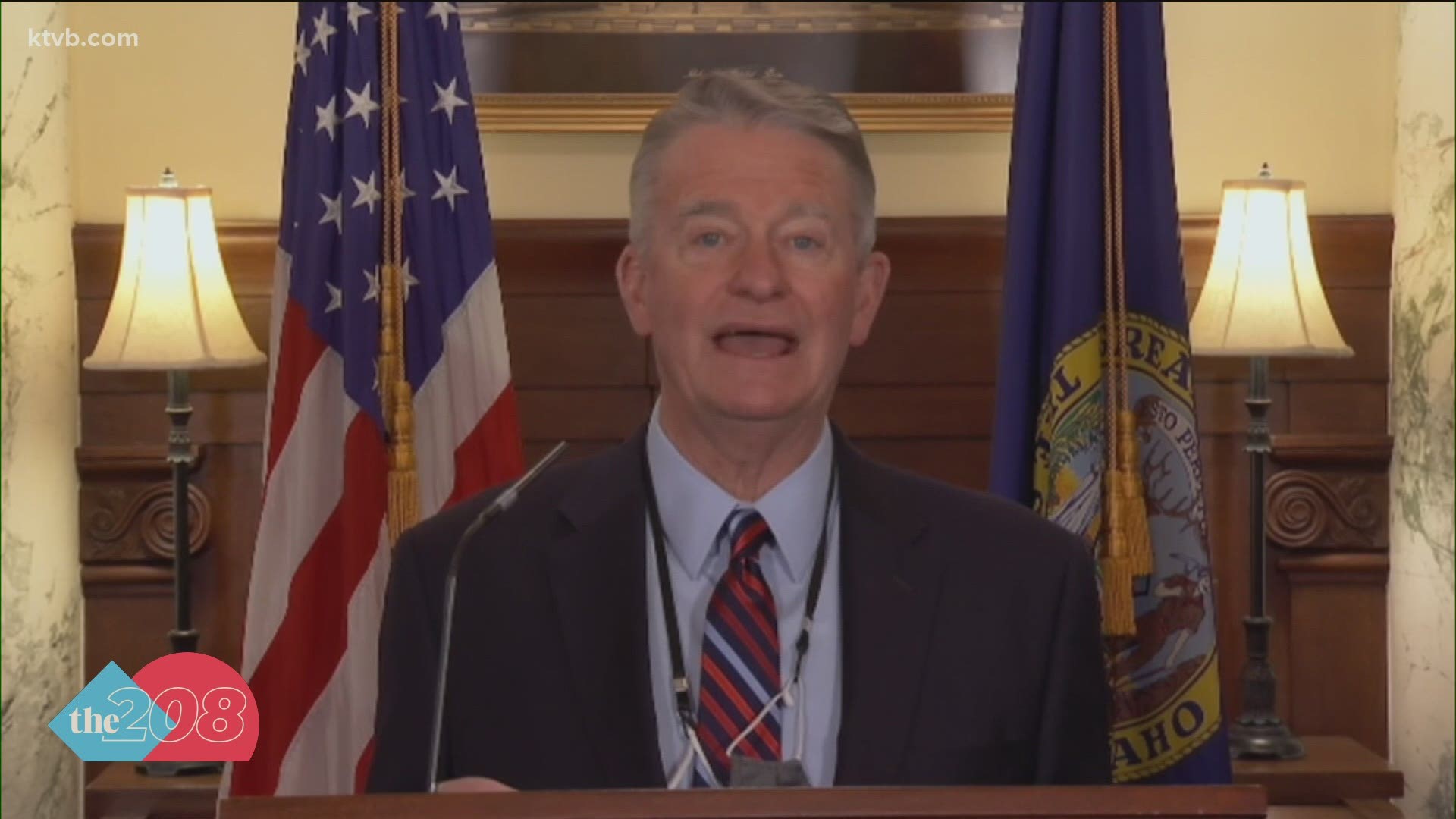BOISE, Idaho — On Friday afternoon, all of Idaho's living governors showed a united front behind Gov. Brad Little vetoing two bills that would trim an Idaho governor's powers during an emergency while expanding the legislature's.
In a brief press conference, Gov. Little was joined by former Republican Idaho governors C.L. "Butch" Otter and Dirk Kempthorne, who both made statements explaining why they think vetoing House Bill 135 and Senate Bill 1136 is the right decision.
"The bills handcuff the state's ability to take timely and necessary actions to help Idahoans in future emergencies," Gov. Little said. "The bills narrow the authority of future governors to the point where a governor could not deploy the National Guard to facilitate vaccine administration or repair bridges after a massive earthquake. The bills limit the state's ability to help agriculture and industry minimize financial loss during a drought or flood. In addition, the bills limit the state's ability to help reopen schools and businesses following a catastrophic disaster."
Former Gov. Otter (2007-2019) applauded Gov. Little's decision and said an emergency is no time to slow down the government's response. He added that the governor's powers during an emergency are enshrined in the state's Constitution.
"He and every future governor must have the authority and tools they need to respond quickly, save lives, and protect livelihoods during a crisis," he said. "The people of Idaho expect their elected officials to lead responsibly and with their best interests at heart."
Former Gov. Kempthorne (1999-2006) said governors are given the responsibility by the state constitution to make decisions during an emergency, adding that governors shouldn't need to refer back to the legislature while out on the frontlines of a crisis.
"These are situations that are unanticipated, unexpected, but when they do happen, and they do, somebody needs to take action and make the tough decisions," he said in a virtual statement. "The governor is required to do that in our Constitution."
In his closing remarks, Gov. Little said it has gotten too divisive and the legislature's duties of serving Idahoans "have taken a back seat to fringe topics."
"Anger has dominated the dialogue and, as a result, the real work the people sent us here to do is impacted," Gov. Little said. "Anger is the wrong reaction in these troubled times. Anger drives people apart during a time when we should be working together to heal and move forward."
He added that Idahoans deserve lawmakers' best and that "it's time to get back on track."
Former governors Phil Batt and Senator Jim Risch also wrote statements in support of Gov. Little's decision.
With decades of experience in the legislature before becoming lieutenant governor (2003-2006 and 2007-2009), governor (2006-2007) and U.S. Senator (2009 to present), Risch said he knows all too well the power struggles between the legislative and executive branches. However, he added that there are clear powers given to each branch, including emergency powers given to the governor.
"In times of crisis, the governor—any governor—must have the ability to quickly and effectively address an emergency challenge," Risch wrote. "Such authority should not be unlimited or perpetual but hampering a governor's latitude and discretion to act in future unknown emergencies is not in the state's best interest."
Former Governor Batt (1995-1999) said the 1996 Panhandle Floods needed the governor's power to start and continue an emergency declaration at the request of impacted communities to best help them.
"Governors need the ability to act quickly during an emergency to protect lives, jobs, and the economy. That is the proper role of the executive. The Governor's emergency authorities are recognized in our state Constitution and should be maintained," he said.
Since day one of the 2021 legislative session, Idaho lawmakers have worked on legislation that they believe will better balance government powers during a state of emergency. The two bills vetoed by Gov. Little were the most successful attempts by legislatures to curb the executive branch's power, a move that Little described as an "emotional response."
Lawmakers are taking aim at rules intended to stem the pandemic, like limiting gatherings and nonessential travel, as well as a governor’s authority during localized natural disasters such as wildfires and floods.
Now it remains to be seen if legislatures will override Little's veto.
Editor's Note: This is a developing story and this article will be updated when further details are made available. Check back for updates.

